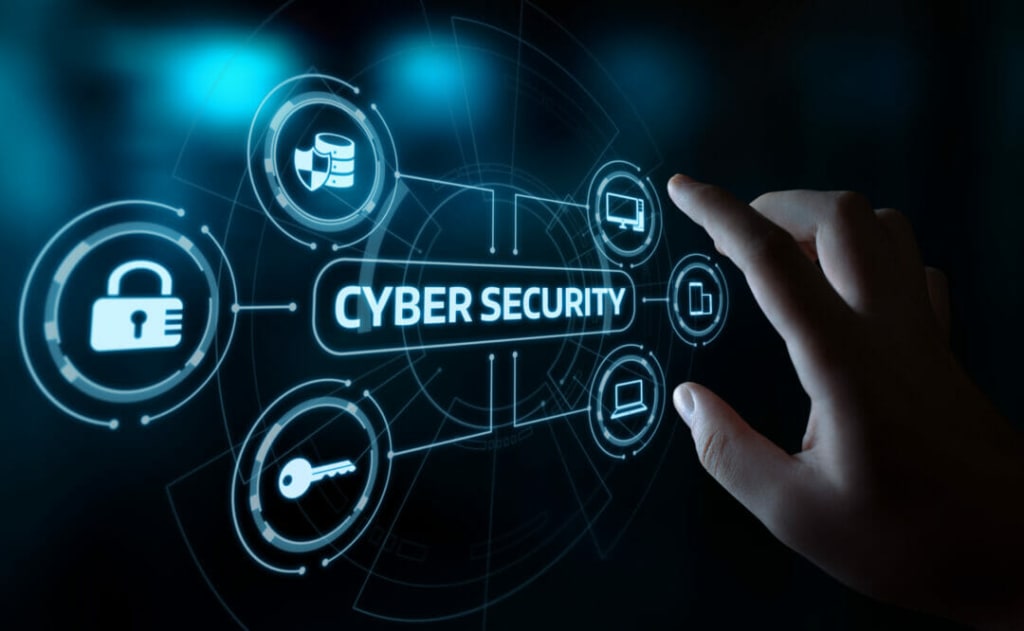Cybersecurity: Protecting Your Business and Personal Data in the Digital Age
In the modern era, technology has become an integral part of our lives. We rely on it to communicate, work, and store our personal data. With the convenience technology provides, it also comes with a great deal of risk.

In the modern era, technology has become an integral part of our lives. We rely on it to communicate, work, and store our personal data. With the convenience technology provides, it also comes with a great deal of risk. Cybersecurity has become a crucial aspect of protecting our personal and business data in the digital age. In this article, we will discuss the importance of cybersecurity and ways to protect your business and personal data.
What is Cybersecurity?
Cybersecurity refers to the practice of protecting electronic devices and networks from unauthorized access, theft, or damage. Cybersecurity measures are put in place to safeguard personal, financial, and business data from malicious attacks. These attacks can come in various forms, including phishing, hacking, and malware.
The Importance of Cybersecurity
In today's digital world, cybersecurity is more important than ever before. Cyberattacks can have a devastating impact on businesses and individuals, resulting in significant financial loss, reputational damage, and potential legal consequences.
For businesses, a cyberattack can result in a loss of revenue, theft of sensitive data, and damage to their reputation. Data breaches can lead to significant financial losses and even bankruptcy for small and medium-sized enterprises (SMEs). For individuals, a cyberattack can lead to identity theft, loss of personal information, and financial fraud.
Protecting Your Business Data
- As a business owner, it is crucial to protect your data and that of your customers. Cybersecurity should be a top priority for businesses of all sizes. Here are some best practices to protect your business data:
- Develop a cybersecurity plan: Create a comprehensive cybersecurity plan that includes policies and procedures to protect your data. Train your employees on the importance of cybersecurity and how to identify and prevent cyber threats.
- Use strong passwords: Require employees to use strong passwords and change them regularly. A strong password should be at least eight characters long and include a mix of upper and lowercase letters, numbers, and special characters.
- Implement two-factor authentication: Two-factor authentication adds an extra layer of security to your accounts by requiring an additional form of authentication. This could be a code sent to a mobile device or a fingerprint scan.
- Use antivirus software: Antivirus software can help protect your systems from malware and other cyber threats. Make sure to keep your antivirus software up to date.
- Backup your data: Regularly back up your data to an external hard drive or cloud storage. This will ensure that you can recover your data in the event of a cyberattack.
- Monitor your systems: Monitor your systems regularly for unusual activity or unauthorized access. Set up alerts to notify you of any suspicious activity.
- Conduct regular cybersecurity audits: Conduct regular cybersecurity audits to assess your current security posture and identify any vulnerabilities.
Protecting Your Personal Data
- In addition to protecting your business data, it is also essential to protect your personal data. Here are some best practices to protect your personal data:
- Use strong passwords: Use strong passwords for all of your online accounts, including email, social media, and banking. Avoid using the same password for multiple accounts.
- Use two-factor authentication: Enable two-factor authentication for your online accounts.
- Use a VPN: A virtual private network (VPN) encrypts your internet traffic, making it more difficult for hackers to intercept your data.
- Be cautious of public Wi-Fi: Avoid using public Wi-Fi networks to access sensitive information.
- Monitor your financial accounts: Regularly monitor your financial accounts for unauthorized transactions.
- Be cautious of phishing scams: Phishing scams can be difficult to detect, but there are some red flags to watch out for. These include emails from unknown senders, requests for personal information, and urgent messages.






Comments (1)
You can protect your business now using various cloud storage services, as well as using solutions for corporate e-mail. Among cloud storage services, I can definitely single out Beeble as a proven option. You can check here https://beeble.com/en/roadmap for more info about this platform and create an account for free to test and find out how convenient and reliable it is for you.